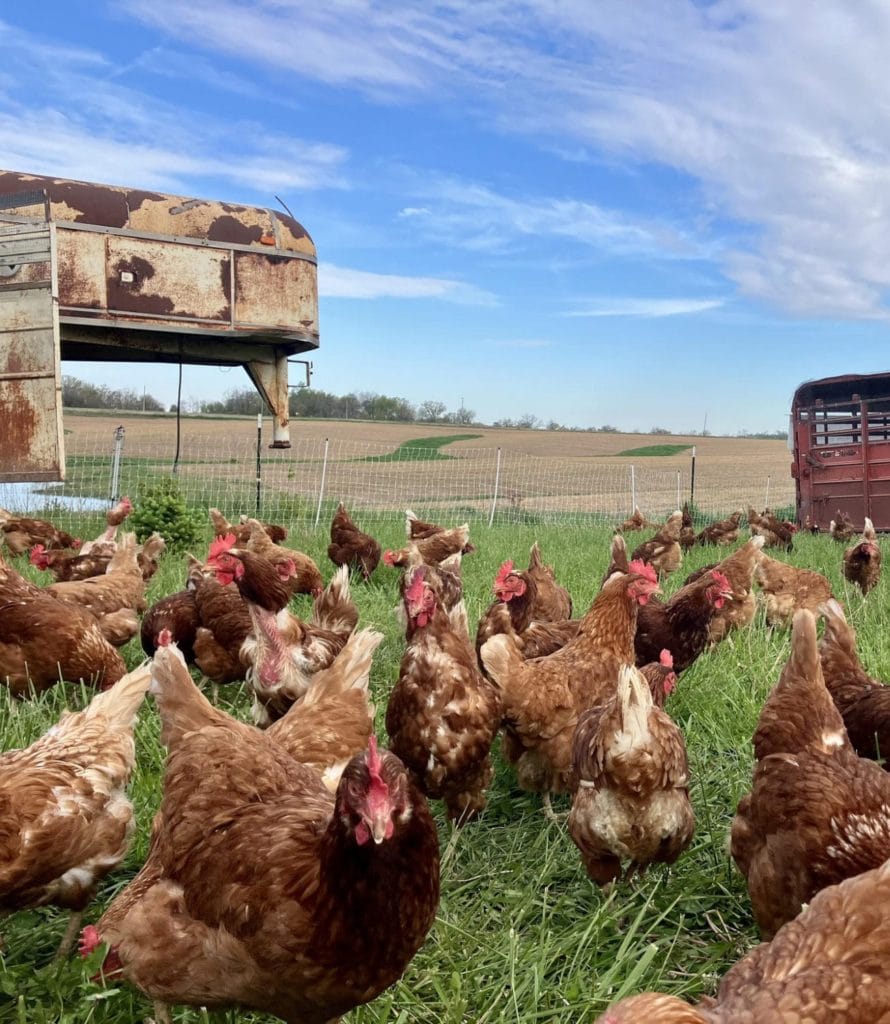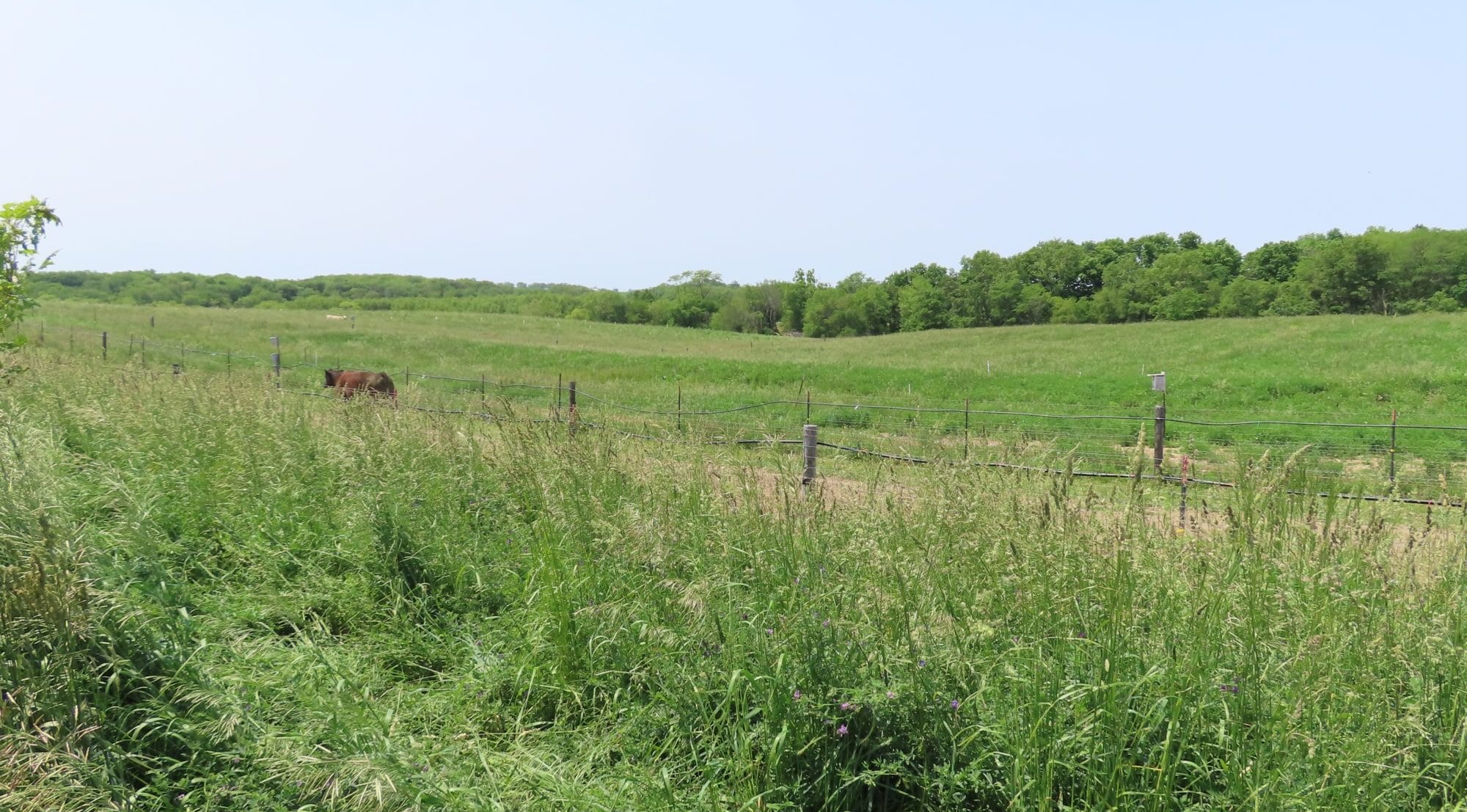Changing Course
Since returning to the family farm, Natasha Wilson and her family have been taking careful steps to shift the farm’s focus so multiple generations can farm together.
West Fork Farmstead is an easy ride from Iowa City, Iowa – about 40 minutes south and a little west along Iowa Route 1. A couple of other straightforward turns will take a visitor to the farm outside of West Chester where Natasha Wilson and her four siblings grew up.
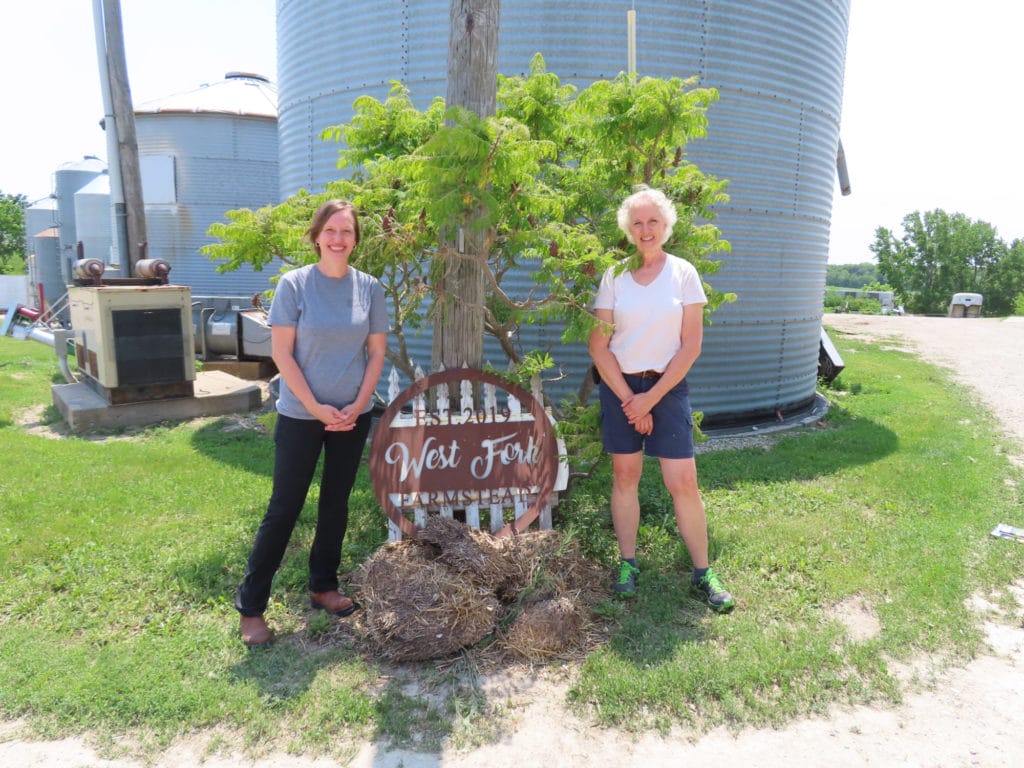
Natasha and her mother, Nancy, stand by the entrance to their farm, West Fork Farmstead, near West Chester, Iowa.
But Natasha’s path back to the family farm was more like that of West Fork Crooked Creek, the aptly named stream (and partial farm namesake) that winds its way like a slanting “u” around and through the farm’s fields. After leaving home, Natasha lived and worked in an array of places. She got her bachelor’s degree in international studies from University of Iowa, followed by a law degree from Washington University in St. Louis. Her path also took her to Chile; Tanzania; Arkansas; Washington, D.C.; and Des Moines.
But the pull of the farm was strong. In 2019, after 17 years away, Natasha returned. “I realized I wanted to raise my children similarly to how I was raised, surrounded by family and running free on the farm,” she says. Today, Natasha is part of a three-generation operation that includes her parents, Nancy and Brian Wilson; her sister, Claire Wilson – who returned to the farm in 2023; another sister, Jess Larghe, who came back in 2025; and her three young children.
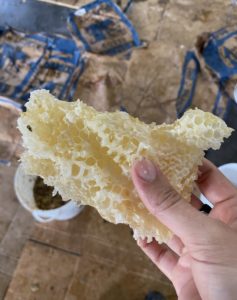
A window into the numerous enterprises of West Fork Farmstead: raw honey. Photo courtesy of Natasha Wilson.
Together, the Wilsons are working to slowly transform the conventional row crop and hog operation Nancy and Brian manage into a pasture-based business focused on grass-fed beef; pastured chicken, eggs and pigs; and raw honey. They’ve been taking their time to build customers and figure out how to ensure the farm is sustainable both financially and ecologically.
Purposeful Change
In hindsight, Natasha’s decision to make a mid-life career change seems as straightforward as the road to town. Even the judge she worked for in Arkansas once told her he thought she’d end up moving back to the farm, Natasha shares. But at the time, she wasn’t sure. “Part of what always seemed intimidating about farming was watching my parents work as hard as they did and never having time off,” she says.
Years later, however, while putting in extra hours on a Saturday for her legal work, she had an aha moment: She realized she was working long hours for something that didn’t really bring her joy. She recalls thinking, “If I’m doing that anyway, I might as well enjoy it.”
That epiphany was in 2018. She promptly called her dad. Over the next several months, she and her parents had long discussions about what it would look like for her to return to the farm. When Natasha’s first child, Corinne, was born in 2019, the time was right. “I envisioned a future where I could have her, and any other kids I have, with me,” Natasha says. “I wanted to prioritize something I cared about and spending time with them.”
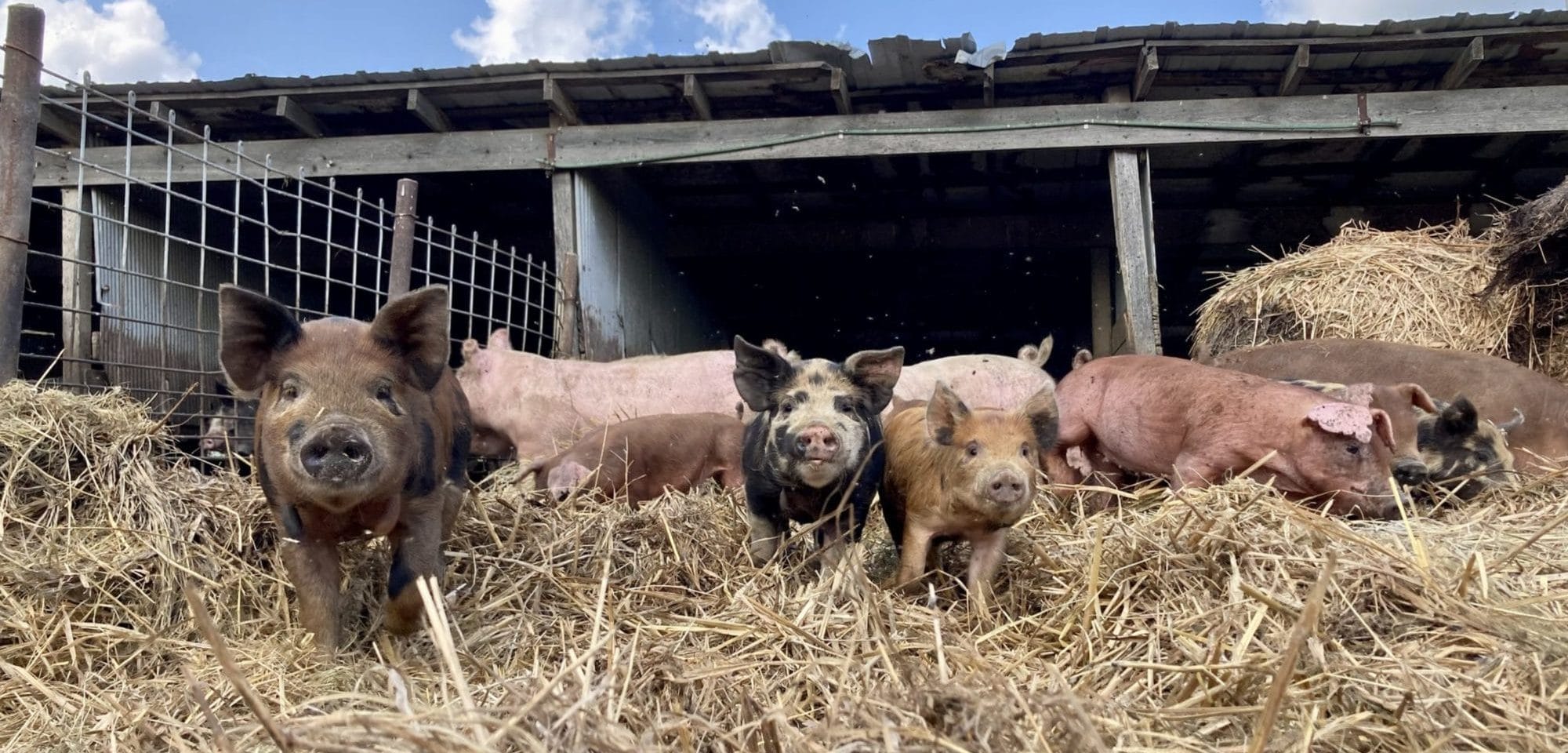
A window into the numerous enterprises of West Fork Farmstead: pigs. Photo courtesy of Natasha Wilson.
It’s now six years since Natasha and her family made the impactful decision to change course. As PFI’s business development viability manager, I’m here with Natasha to learn more about her journey back to the farm – and how she and her family continue to take slow, intentional steps to transform the farm and prepare Natasha, Claire and Jess to take on increasing management roles.
The farmhouse we’re sitting in is the home where Natasha and her siblings were raised. It’s where her mother was raised – and where Nancy homeschooled all her children, while also farming full-time alongside Brian. The farm and farmhouse belonged to Natasha’s grandparents, who in the early 1980s transitioned it to Nancy and Brian. Now, it’s their turn to make space for the next generation.
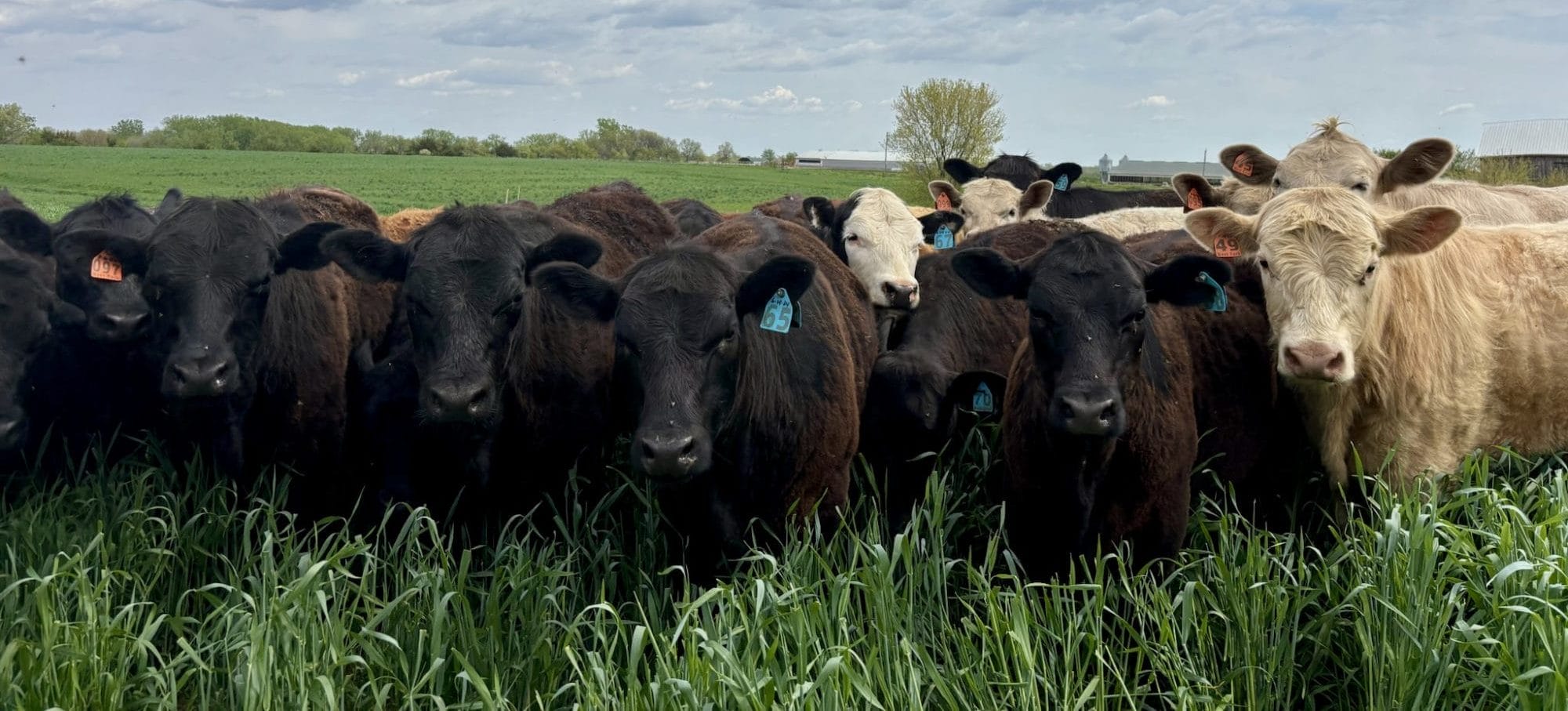
A window into the numerous enterprises of West Fork Farmstead: cattle. Photo courtesy of Natasha Wilson.
When Natasha expressed her desire to return, Nancy and Brian knew they’d need to make changes. They had already started converting row-crop land into pasture and raising some livestock for family consumption. Natasha says this led them to think, “If this is what we want to eat, other people might feel the same.” But they first needed to figure out how all of the new pieces of the farm would fit with the old.
To help guide their thinking, Natasha applied for PFI’s Savings Incentive Program. She was accepted as part of the SIP Class of 2022. The two-year program helps beginning farmers create a business plan, connects them to experienced farm mentors and helps them set goals and save money. It also offers matching funds to support the purchase of a farm asset.
Through SIP, Natasha was able to more closely examine each of the enterprises she and her family were planning to add.
She also made valuable connections with other farmers and had space to define the farm’s goals and vision. Natasha says this helps them stay focused when new opportunities arise, such as increasing herd size or exploring e-commerce. “We have all these choices to make,” she says. “I come back to our values all the time.”
Building on what she learned, Natasha decided to sign up for PFI’s Farm Business Coaching program in 2023. Working with farm business expert Julia Shanks, who runs Julia Shanks Food Consulting, Natasha learned more about financial documents, like enterprise budgets. The program helped her figure out how much they needed to pay farm employees, and how to do so in a sustainable way. “That was a giant question mark that [the program] helped with,” Natasha says. Inspired by the support she received through the PFI network, she joined PFI’s board of directors in 2025.
Having a better grasp of how to make farm management decisions has been crucial as Natasha’s sisters have returned to the farm. When Natasha first came back, she and her parents spent the first few years focusing on putting profits back into the farm and building infrastructure. Now, they’re focusing on growing the farm and making sure they have revenue to support wages for those working on the farm.
“We’re not just growing for the sake of growing,” Natasha says. “A big part of what we try to figure out is what is our enough.”
Guided by Care
The Wilsons have also had to figure out the best ways to use everyone’s skills. When Claire decided to return, she brought her own set of strengths. For instance, while Natasha handles much of the marketing – and enjoys being able to express her creativity in this way – Claire has more mechanical skills.
When Claire came back, the goal was for her to split her time between helping Nancy and Brian with their conventional operation and helping with West Fork Farmstead’s enterprises. Slowly, they plan to transition Claire to working fully for the West Fork part of the farm. With Jess back on the farm, the family is now thinking about how best to use her skills and ensure she gets paid for her farm work.
Nancy says that being intentional about these decisions is essential to transition planning. The family worked with an expert in estate planning to structure assets in a way that would benefit all five children, while also ensuring that Natasha could continue to run her business.
For Natasha, being able to carry on the farm’s legacy is especially meaningful. Recently, she received a call out of the blue from someone asking if she would consider selling her West Fork business in the next five years.
Her response was an immediate no. “I don’t want to do this anywhere else,” she says. “I am extremely fortunate to have a farm, and parents that are still successfully farming and were open to having someone come back.”
Each generation has been able to add to the farm legacy, she adds. The pasture is one example. It was once used to grow corn and soybeans. Now it’s a perennial pasture with a diverse array of plants, birds and wildlife. Nancy credits the high quality of their meat to raising the animals on pasture. Natasha agrees. “From day one when I walked in the door and ate that product [beef] to what it’s like now – it’s a dramatic change.”
This was one of Natasha’s goals when she came back to the farm: producing high-quality food to share with her community – and her family. As we talk, her daughter Corinne, 5, and son Lucian, 3, enjoy sandwiches made with fresh asparagus from their garden and shaved ham from their pastured pigs. The food is as local as it gets. Knowing their animals lead happy lives and are raised with care is also important to Natasha.
Before we say goodbye, I have a chance to see what this looks like. After a short ride in the Wilsons’ gator to the renovated pasture, Natasha, Lucian and I hop out to see the chicken tractors and the diverse ecosystem the Wilsons have created. The hens cluck softly as they forage in fresh grass, and the pasture is lush and full of blooms. I can see the path where the chicken tractor had been – and over the fence, the cattle as they roam toward us.
For them – as well as Natasha and her family – that path is winding ever closer to a future more connected to the land, community and each other.

